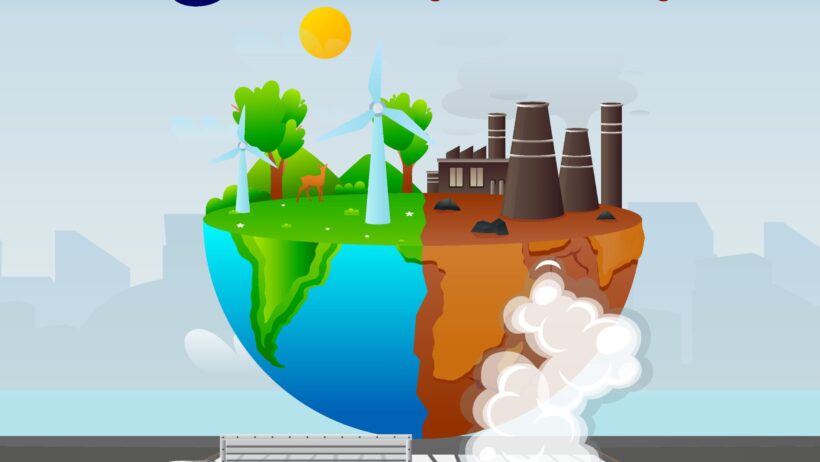Natural gas has been lauded as a “cleaner” alternative to other fossil fuels, notably coal and oil. This perception has spurred numerous nations to pivot towards natural gas as a transitional fuel in the quest to mitigate carbon emissions. However, the climate impact of natural gas is increasingly scrutinized for its role in exacerbating global warming, often characterized as a paradox of its very designation as a cleaner energy source. The growing body of evidence points toward a more nuanced and, frankly, alarming reality.
To understand the implications of utilizing natural gas, one must first recognize the peculiarities of its combustion process. When burned, natural gas emits significantly lower levels of carbon dioxide compared to coal or oil. This initial observation is often the crux of the argument promoting natural gas as an environmentally friendly choice. However, this oversimplified view belies the complexities of natural gas extraction, production, transportation, and consumption.
Natural gas primarily comprises methane, a potent greenhouse gas. Methane has a global warming potential significantly greater than that of carbon dioxide—estimates suggest it can be more than twenty-five times as effective at trapping heat in the atmosphere over a 100-year span. A critical concern arises from the fact that methane leakage during natural gas extraction and processing can undermine any carbon dioxide emissions reductions achieved through its combustion. Leak rates, often referred to as fugitive emissions, can vary dramatically depending on the technology and practices employed. An increase in methane emissions can substantially negate the climate benefits attributed to the reduced carbon dioxide emissions from natural gas use.
The process of hydraulic fracturing, or “fracking,” adds another layer of complexity to the debate. While the extraction of shale gas through fracking has unlocked vast reserves of natural gas, it has also been linked to several environmental concerns. The injection of high-pressure water mixed with chemicals into underground rock formations can contaminate groundwater and necessitate hefty water withdrawals, impacting local ecosystems. Moreover, the development of fracking infrastructure often leads to habitat destruction and can compromise air quality, aggravating respiratory issues in nearby populations.
Transitioning to natural gas does not mitigate all environmental issues associated with fossil fuel dependency. Instead, it may prolong the reliance on fossil fuels, delaying the urgent shift to renewable energy sources such as wind, solar, and hydroelectric power. In various regions, government subsidies for natural gas infrastructure, often framed as investment in cleaner energy alternatives, inadvertently hinder progress toward sustainable solutions. The notion that natural gas can serve as a panacea for climate change can foster complacency, encouraging prolonged investments in fossil fuel systems while renewable energy technologies languish for funding and deployment.
The socio-political landscape further complicates the discourse surrounding natural gas. In many countries, the natural gas industry is fortified by economic interests that resist transitioning toward greener alternatives. The employment and revenue generated from natural gas extraction and distribution create powerful lobbying forces determined to maintain the status quo. Often, arguments in favor of natural gas framed as an interim solution conveniently overlook the necessity of robust policy measures targeting carbon emissions reductions across all sectors.
Moreover, a cultural fascination with natural gas as a “transitional fuel” merits examination. The narrative that positions natural gas as a bridge to a renewable-fueled future plays into a broader societal desire for immediate solutions without confronting the systemic changes required to achieve genuine sustainability. This belief underscores the cognitive dissonance between the urgency of the climate crisis and society’s reluctance to embrace more radical alterations to energy consumption patterns.
The interplay between natural gas and climate goals necessitates a comprehensive approach to understanding the full implications of its usage. It is vital to consider not only carbon output but also methane leakage, environmental degradation, and social justice concerns. A holistic understanding reveals that the solution is not merely to understand natural gas as a cleaner alternative but to evaluate its consumption within mechanisms that prioritize ecological integrity and the long-term viability of our planet.
The transition to a low-carbon economy demands an unequivocal commitment to renewable energy sources devoid of fossil fuel dependencies. The urgency to innovate strategies that effectively curtail greenhouse gas emissions cannot be overstated. This includes fostering advancements in technology for capturing and storing carbon, implementing stringent regulations to minimize methane leaks, and prioritizing investments in sustainable energy infrastructure geared towards a fossil-free future.
In conclusion, while natural gas is often celebrated for its lower carbon footprint relative to other fossil fuels, the broader environmental implications reveal a more complex narrative. The prevalence of methane leaks, ecological degradation from extraction processes, and the socio-political entrenchment of the natural gas industry warrant a critical reassessment of our reliance on this so-called cleaner fuel. Genuine progress against climate change will only be realized through an unwavering commitment to renewable energy solutions that embrace ecological sustainability while simultaneously enhancing social equity.








